The Best Organic and Sustainable Clothing Brands for Everyone that Wants to Dress Ethically
This extensive list consolidates the best Organic and Sustainable Clothing Brands to help you make ethical choices when it comes to the clothes that you choose to buy and wear.
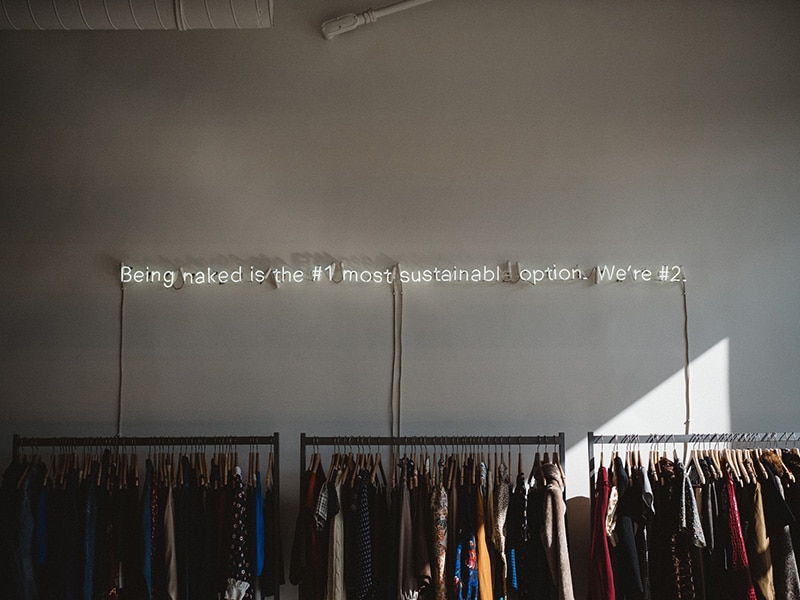
Despite all the talk about fashion becoming sustainable, this is still an industry built on inhuman working conditions, pollution, and toxicness. And the textile sector now accounts for 8-10% of global Co2 emissions. Every small action is important. Every individual choice is relevant.
Every year 85% of textiles produced ends up in landfills. Clothing. Shoes. Gear. Wasted, without a second thought. But it doesn’t have to be this way. We can shift from a traditional, linear model to a circular model where people share, resell, repair and recycle clothing to keep them out of landfills and in the value chain.
A world where people can have more experiences with less waste.
- What are Sustainable Clothing Brands?
- Sustainable Clothing Brands
- AEVOR (Germany)
- ArmedAngels (Germany)
- Baserange
- Beaumont Organic (UK)
- Sustainable Clothing Brands – Boody (UK)
- Braasi Industry (Czech Republic)
- By Garment Makers
- Colorful Standards
- Cotopaxi
- Dedicated
- Freitag
- Sustainable Clothing Brands – Fjällräven
- Girlfriend Collective
- Houdini Sportswear
- Jan ‘N June
- Kings of indigo
- Kotn
- Knowledge Cotton Apparel
- Sustainable Clothing Brands – Miakoda
- Millican
- MUD Jeans
- North Face Renewed Collection
- Nube
- Sustainable Clothing Brands – Nude
- Organic Basics
- Outerknown
- Pact
- prAna
- Sustainable Clothing Brands – Patagonia
- Picture Organic Clothing
- Pinqpong
- Rotholz
- Sandqvist
- Sustainable Clothing Brands – SKFK
- Skida
- Son of a Tailor
- Tentree
- Sustainable Clothing Brands – Thinking MU
- Threads 4 Thought
- Ucon Acrobatics
- Sustainable Clothing Brands – Veja
- Wax London
- Wild Rye
- Sustainable Clothing Brands – Terms
- GOTS Certified organic
- Fairtrade
- B Corporations
- Bluesign® Standard
- Fair Wear Foundation
- IVN (Internationale Verband der Naturtextilwirtschaft e. V.)
- GRS (Global Recycling Standard)
- Oekotex®-Standard 100
- PETA (vegan) Approved
- Social Accountability Standard International SA8000
- Slow Fashion
What are Sustainable Clothing Brands?
Within the eco industry and sustainable clothing brands there are a few terms that are important to understand: slow fashion, ethical fashion and sustainable fashion.
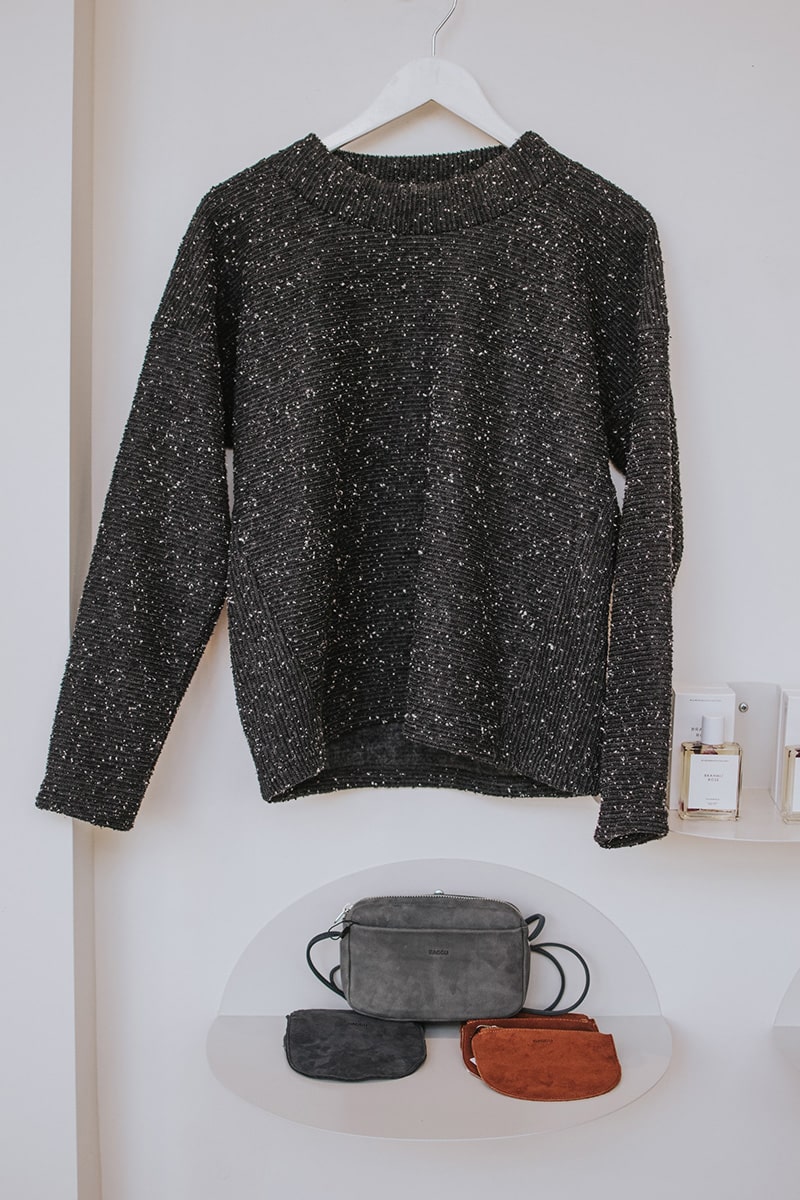
The lines between slow fashion, ethical fashion and sustainable fashion are often blurred. This article concentrates on ethical, organic and sustainable clothing brands.
Ethical Fashion
Ethical fashion is often concerned with human and animal rights. As it relates to humans, ethical fashion applies to working conditions, fair wages and treatment, and no child labor.

Sustainable Fashion (or Eco Fashion)
Sustainable fashion is often concerned with the environmental impact. Opting for fibres and materials that are organic, recycled, or repurposed, limiting harmful chemicals/dyes, reducing energy/water usage and waste, and overall choosing low-impact options wherever possible.
Slow Fashion
Slow fashion was formed in opposition to fast fashion. It involves ignoring trends and bad practices such as buying large quantities of clothes that are barely worn.
Instead it stands in favour of owning fewer, carefully selected items that use timeless style to transcend quick trends. Fewer clothes, better materials, higher quality and adherence to ethical and sustainable practices.
Sustainable Clothing Brands
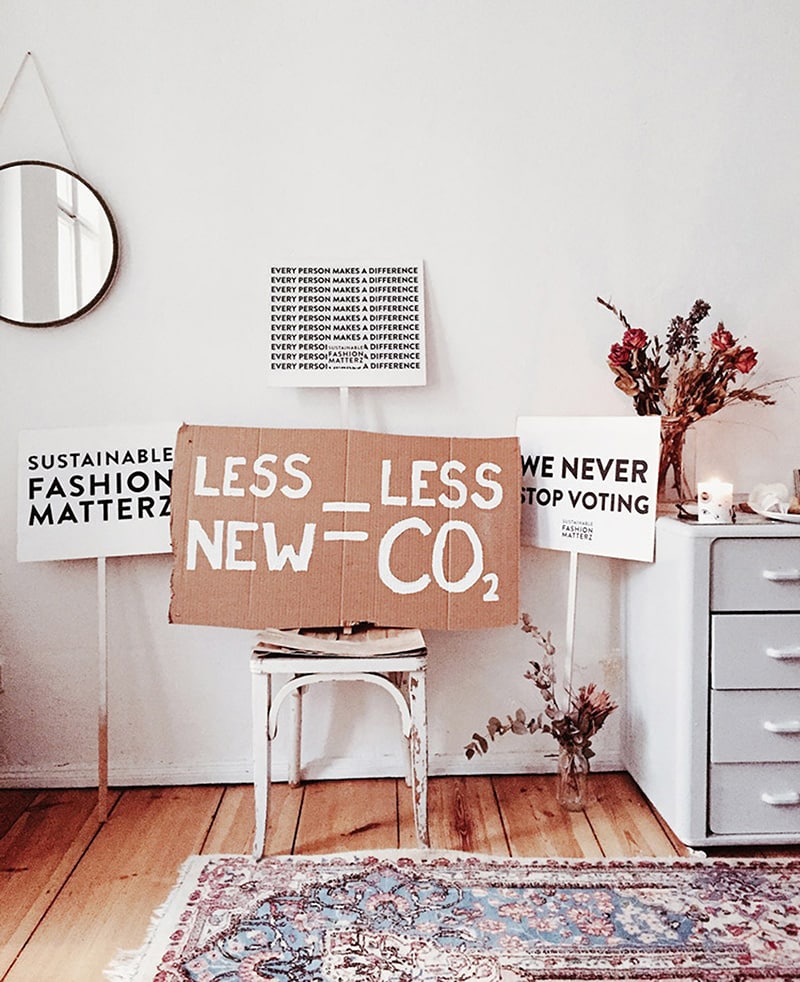
The following sustainable clothing brands have all been chosen for their commitment to a better ideal for the materials, processes, morals and environmental impact involved in the design, creation, production and sale of clothing.
AEVOR (Germany)
AEVOR started making functional, stylish and sustainable backpacks, bags, and accessories in 2016.
They were awarded Leader status by the Fair Wear Foundation, an organisation that helps to ensure that the factories they use are safe, and workers benefit from fair labour conditions.
AEVOR are also a bluesign® system partner, working together to minimize the environmental impact throughout the entire production process. To save additional resources, they use outer fabrics consisting of 50-100% recycled PET bottles.
The company won the German Design Award in 2017.
Country: Germany
ArmedAngels (Germany)
“We prove that fashion can be done differently. With every piece. Everyday. We make sustainable fashion with the highest respect for humans and nature.”
They only use sustainable & regenerative materials such as organic cotton, organic linen, organic wool, recycled cotton, LENZING™ ECOVERO™ and TENCEL™ Lyocell. To show that these are not just empty words, they have been GOTS certified since 2011.
Country: Germany
Baserange
Founded in 2012, Baserange create modern basics with an emphasis on clean lines and easy silhouettes.
The company works closely with innovative vendors to develop high quality textiles from both natural fibres and recycled content. Baserange believes that a commitment to clean production will minimize environmental impact and benefit both the producer and the user.
Beaumont Organic (UK)
Beaumont Organic is a UK-based slow fashion brand that blends simple style with ethical production practices. Founded by Hannah Beaumont-Laurencia, the brand also has its own charitable foundation which supports people in Fiji.
Country: UK
Sustainable Clothing Brands – Boody (UK)
Made from organically grown bamboo, Boody is a UK clothing brand that supports the trend for all things green & ethical. Boody’s sustainable activewear line has everything you might need for your workout, including bamboo leggins, sports bras, shorts and socks.
Country: UK
Braasi Industry (Czech Republic)
Braasi Industry is a young Czech backpack brand, founded by two young architects, Eliška and Šimon.
In addition to their own architectural studio, they devoted their spare time to producing backpacks for themselves and their acquaintances.
“The back of the Braasi backpacks is designed carefully so that it offers you the most comfort while carrying. We were inspired by old military backpacks, where the shoulder straps come from one point. This makes the entire weight well distributed over your shoulders. Due to the easily adjustable shoulder straps are the backpacks comfortable for tall as well as shorter users. The back and the straps are padded and sew through.”
Country: Czech Republic
By Garment Makers
“We believe in challenging the ethical fashion business and aim to deliver high quality sustainable garments for fair prices.”
All of their products are fully organic and GOTS certified (The Global Organic Textile Standard) and made in Europe.
Country: Denmark
Colorful Standards
“We love colors and we love simplicity. There is nothing better than a perfect-fitting T-shirt or Hoodie, long lasting, and developed from the highest quality organic cotton. We also don’t care much for seasons or trends. We are more into timeless classics that will most likely never become outdated. Our pieces are here for the long run.”
Sustainable, colourful and uncomplicated, Colorful Standard create excellent organic fashion essentials.
Their minimal pieces are made from 100% Organic cotton, which means cotton that is grown without genetically modified seeds. All the clothing is made in Portugal with a strict adherence to fair wages, no discrimination and freely chosen employment.
5% of their proceedings go to the newly established football club and foundation in the Democratic Republic of Congo, FC Masi Manimba.
They operate flagship stores in Paris, France and Zurich, Switzerland.
Cotopaxi
“We create innovative outdoor products and experiences that fund sustainable poverty relief, move people to do good, and inspire adventure.”
As a certified B Corporation, Cotopaxi put 1% of their revenue toward addressing poverty and supporting community development. Through their grant program they promote organizations that successfully improve the human condition.
To date, they have awarded 42 grants in six focus countries, helping initiatives such as the International Rescue Committee (emergency aid and long-term assistance to refugees and those displaced by war, persecution, or natural disaster) and the UN Foundation – Nothing but Nets (to eliminate malaria).
The name Cotopaxi is taken from an eponymous active stratovolcano in the Ecuadorian region of the Andes. The brand hails from Salt Lake City, Utah.
Country: USA
Dedicated
“We started with an environmental retail chain back in 2006 and realized that there were no sustainable brands with flavor, in terms of graphics or relevant collaborations. So we created Dedicated to fill that gap. We want to show that fashion can be done differently. In touch with nature. Fair & responsible.”
Dedicated are a sustainable street fashion brand that collaborate with photographers, illustrators and artists from all over the world in order to give you unique, fun, diverse and ethical collections.
They work without the use of toxic pesticides or chemicals, and work with GOTS and Fairtrade certified cotton, GRS recycled polyester and natural fibers such as Tencel Lyocell.
Country: Sweden
Freitag
Recycled products made from Truck Tarp.
The result of this was the F-ABRIC. All materials used for the creation of the material are produced on European soil within a radius of 2500 km from Zurich and are 100% naturally decomposable.
Country: Switzerland
Sustainable Clothing Brands – Fjällräven
“We’ve been trekking for more than 50 years; I hope we never get there.”
Hailing from the small town of Örnsköldsvik in Sweden, a place where mountains and forest meet the sea, Fjällräven is an outdoor clothing and equipment company that’s committed to making nature more accessible. In true Swedish style, they focus on simplicity and practicality with the utmost respect for the environment.
They divide their materials and fibres into three categories: excellent, good and OK. Excellent, like recycled wool, organic hemp and Tencel®; good, such as recycled polyester, G-1000 Eco and traceable wool; OK, like polyamide, cotton, metal buttons. They don’t use PFCs, PVCs and angora wool. Since 2012 Fjällräven eliminted fluorocarbon-free impregnation from their entire product range.
The Fjällräven Chemical Guideline helps them avoid hazardous and banned chemicals. “We are constantly updating and revising this list based on new information. This is done with support from the Swedish Chemicals Group – of which we’re members – that’s overseen by the Swedish Research Institute for Industrial and Sustainable Growth (Swerea).”
Country: Sweden
Girlfriend Collective
Girlfriend Collective make minimal, sustainable women’s activewear with certified fair labour, certified by the Social Accountability Standard International SA8000.
They use recycled polyester as well as low-impact non-toxic dyes and is fully Oeko-Tex Standard 100 certified.
Houdini Sportswear
“We are a progressive outdoor company based in Stockholm, Sweden. Together with an odd band of scientists, artists, designers and adventurers, we are pushing the boundaries of how outdoor clothing is made. Together with our customers, we are recycling, renting, repairing and reusing our way to a new, sustainable outdoor industry.”
100% of all the fabrics that Houdini use this season are recycled, recyclable, renewable, biodegradable or Bluesign certified.
They never blend naturals and synthetics, because then they can be neither recycled nor decomposed. Houdini use two natural fibres exclusively: Merino wool and Tencel™ Lyocell. These two fibres have many benefits, both in terms of performance and sustainability.
Country: Sweden
Learn more about Scandinavian Outdoor Brands.
Jan ‘N June
“We are a sustainable, fair and transparent eco fashion label from Hamburg. Shop eco-friendly tops, sweats, dresses & bottoms. Let’s say #byebyefastfashion.”
All their clothes are created from GOTS Organic linen, organic cotton, recycled cotton, recycled polyester, tenowa, recycled polyamide and Tencel® and produced in Wroclaw, Poland in a family-owned factory.
Jan ‘N June also adhere to Oekotex®-Standard 100 and IVN BEST (Internationaler Verband Naturtextilindustrie) standards. This quality standard, best known in Europe, is much higher than current legal mandates within the European Union.
They meet all the GRS (Global Recycling Standard) standards, an international, voluntary, full product standard that sets requirements for third-party certification of recycled content, chain of custody, social and environmental practices, and chemical restrictions.
Every item has a qr code that leads to the ECO-ID – the passport of each item. It reveals the supply chain through every step such as the origin of the resource or the final production.
Country: Germany
Kings of indigo
“Kings of Indigo positions itself as a pioneer in this ever-changing sustainable fashion world, innovating with materials and sustainable production methods, constantly exploring how to reduce the impact on the planet and people.”
- Fully PETA (vegan) approved since 2020.
- 100% certified organic cotton; GOTS or OCS.
- Up to 95% of the collection is made of sustainable materials.
- Fair & safe working conditions at 100% of audited production facilities
- A minimum wage is guaranteed at all facilities.
- 2020: launch of an exclusive denim capsule collection made with no new cotton.
- 2020: biodegradable stretch denims developed and produced.
- 2020: elimination of PP spray on denims.
Country: Netherlands
Kotn
“At Kotn, we believe that traceability—the knowledge of where a product came from, who made it, how, and when—shouldn’t be a luxury, but a standard. That’s why we built Kotn from the ground up, working directly with every step of our supply chain…”
Designed in Canada, Kotn’s quality basics from 100% Egyptian cotton products are ethically and sustainably made in the Nile Delta.
They are a certified B Corporation. Additionally, they work with a local NGO in Egypt to provide every child in the farming communities with safe, convenient, quality education.
“We’ve also prioritized a 2:1 female to male student ratio in an effort to empower young girls to experience equal opportunity. With every purchase, your orders fund the build-out and operations of school infrastructure, salaries for teachers, laptops, maintenance for the roads that link communities to our schools, books and supplies, science labs, water and electricity, furniture, and technical training for facilitators.”
Country: Canada
Knowledge Cotton Apparel
“We design and develop for a new tomorrow.”
Knowledge Cotton Apparel use 100% organic cotton and classify their fibres according to their sustainable performance based on the “Made-By” Environmental Benchmark for fibres and the international standard for organic and recycled production.
They use Recycled PET (polyethylene terephthalate – a type of plastic derived from petroleum used to make soft drink bottles) for a selection of items because it is very resilient, quick drying, and easy to wash while keeping its shape.
- Recycled Nylon – 100% of the recycled nylon fibre they use is generated from post-consumer land field waste.
- Tencel – Tencel is made from wood pulp from sustainably managed forest plantations. The fibre production is extremely eco-friendly since the wood fibre uses less water in the production process than cotton.
- Vegan products – They use only certified organic wool or certified recycled wool in our products. All labeling is from 100% certified recycled materials. 95% of their total product portfolio is vegan approved.
Country: Denmark
Sustainable Clothing Brands – Miakoda
If you’re all about that organic plant-based lifestyle, then you’ll most certainly vibe with Miakoda and its organic, ultra-cosy lounge and activewear.
Supportive of different shapes and sizes, these ethical and sustainable pieces include stripped-back colours and designs that are all about comfort. Everything is manufactured in an ethical factory in NYC, and all packing materials are eco-friendly.
Country: USA
Millican
Millican make stylish, hardwearing and functional Rucksacks.
They work from a Cumbrian farm at the Foot of Skiddaw in the English Lake District National Park, guided by the irresistible movement of the seasons.
Country: UK
MUD Jeans
MUD Jeans makes high quality vegan jeans in a sustainable and fair way. Old jeans are recycled after use.
- Circular denim.
- Denim dyed with minerals
- Jeans can be leased
“In 2013 we introduced our pioneering Lease A Jeans system. Allowing you to lease a pair of jeans for a monthly fee. When the jeans are worn out, or if you feel like a change after 12 months, you can send in your jeans and switch to a new pair. We then recycle the old pairs into new items.”
Usage over ownership
“We promote use over ownership. By leasing jeans and recycling or upcycling the materials, we move to a circular economy in the fashion industry. Lease A Jeans was a direct media-hit and still is an example at many universities educating on the circular economy.”
Country: Netherlands
North Face Renewed Collection
The North Face Renewed is a collection of refurbished clothing remade to explore, more.
Whether previously worn, returned, damaged or defective, it’s inspected, washed and tuned up for your next adventure. It’s the same great quality and performance you expect from The North Face with less impact on the earth.
Country: USA
Nube
Women owned Nube make sustainable activewear and want to “give humans more ways to shop with a conscience.”
All of their goods are manufactured in the US from recycled materials using the best practices in sourcing and production with an aim on reducing waste and environmental impact.
They also partner with artists and designers around the world to create prints motivated by the environmental crisis that inspire connection and action.
Country: USA
Sustainable Clothing Brands – Nude
Located by the Mediterranean Sea and surrounded by mountains, the relaxed and easy-going lifestyle is the key to their designs. They create their basic and long-lasting underwear and swimwear locally with sustainability and transparency at the core of their entire process.
“As we love mama earth, our goal is to make the least possible impact on the planet. We do also love the people living on it and that’s why ethics are so important to us.
Taking the best of both places, our pieces are made to be as natural as possible and to be worn like a second skin by all kind of people, not just for perfect models.”
Country: Spain
Organic Basics
“We put sustainable thinking at the center of everything – that means we only choose fabrics that care for our environment and we only ever partner with factories that care about their impact, too.”
They use GOTS (Licence number: USB TEX 2015) certified organic cotton. This is hand-picked, chemical free organic cotton that’s grown on the coast of the Aegean Sea. It’s widely regarded as some of the most soft and durable cotton in the world. The GOTS standard also guarantees that the people that made this are paid living wages and treated like humans.
Outerknown
Founded by surf champion Kelly Slater, Outerknown is a sustainable brand that aims to blend style and function with the protection of natural resources. The brand is Bluesign certified and has partnered with the Fair Labour Association.
Pact
Everything they make at Pact starts with GOTS certified organic cotton.
Pact partners with Fair Trade Certified™ factories because they ensure care for both people and planet. Fair Trade factories provide safe working conditions, empower and uplift local communities, and protect the environment.
prAna
prAna create premium sustainable clothing for yoga, travel and outdoor adventure enthusiasts.
In Hindu philosophy (including yoga) prana (प्राण, prāṇa is the Sanskrit word for breath, “life force”, or “vital principle” and it permeates reality on all levels including inanimate objects.
- Bluesign®
- Fairtrade certified
- Recycled wool
- Responsible down
Sustainable Clothing Brands – Patagonia
Patagonia is a designer of outdoor clothing and gear for the silent sports: climbing, surfing, skiing and snowboarding, fly fishing, and trail running.
They also make the fantastic Baggies Shorts.
The company was founded by Yvon Chouinard in 1973 and is based in Ventura, California.
- Worn wear
- 1% for the planet
- Patagonia action works
Country: USA
Picture Organic Clothing
Picture was founded by Julien, Jeremy and Vincent, lifelong friends 100% committed to responsibility and sustainability-driven eco-design.
“The skateboard and snowboard culture always had a major influence on us. We drew our sense of identity from the counterculture, watching films and following riders that inspired us beyond their rad clothing style.”
Pinqpong
Pinqponq is dedicated to three important goals: sustainability, clear design and a high degree of functionality.
This label produces sustainable products with excellent design and functionality made from 100% recycled PET bottles. All products are certified according to the Bluesign® standard, which ensures that no harmful chemicals are used in the production.
Rotholz
“Since 2009, we have been creating eco-fashion collections and lifestyle products with a timeless, pared-down look. Rotholz stands for sustainable, fair production and manufacturing. We firmly believe in the rewards of collaborating with local manufacturers and artists.”
Country: Germany
Sandqvist
Founded in 2004, Sandqvist is a brand focusing on challenging the role of functionality in design and practicing sustainability at all times without compromising the aesthetics.
Country: Sweden
Sustainable Clothing Brands – SKFK
Fashion inspired by art and nature, SKFK create avant-garde and seasonal designs for women.
“Through the Chetna Coalition (Chetco), SKFK pledges to buy organic cotton, one year in advance, from a cooperative of small farmers located into the Odisha, Maharashtra and Telangana states of India. The price paid is a fair one, and the long-term commitment reduces economic pressure on more than 35,000 farmers.”
Country: Spain
Skida
Made-in-Vermont, ski-inspired headwear and winter accessories. In the winter of 2008, Corinne Prevot picked up some patterned stretch fabrics at the May Store in Lyndonville, Vermont and made hats for her cross-country ski teammates and friends at Burke Mountain Academy. Soon the demand for her colorful hats grew, as did the variety of prints.
As the buzz snowballed beyond the New England ski community, new products joined the line to keep everyone warm and colorful.
Country: USA
Son of a Tailor
Custom Fitted T-shirts, Polos and Sweatshirts made to fit Your Unique Measurements. Each item is made specifically to your exact measurements.
They exclusively use 100% extra long staple cotton, the highest grade cotton in the world.
Uniform cotton fibres make for a smooth and even fabric that has an incredibly soft handfeel that will only become softer through the whole lifetime of the garment.
The extra-long cotton fibres create a stronger fabric that resists twisting and warping in wash resulting in a T-Shirt that keeps its shape even after multiple washes.
Country: Denmark
Tentree
This earth-first, B Corporation apparel brand celebrates its commitment to our planet with ethically crafted and sustainably designed products, all while planting ten trees for each item purchased. With a motto of “Buy one, plant ten,” tentree believes that you don’t have to be a hardcore environmentalist to make a difference.
The brand has now planted over 42 million trees around the world, and is well on the way to its goal of planting one billion trees by 2030.
Sustainable Clothing Brands – Thinking MU
Organic, GOTS, fairtrade, recycled textiles for women and men from Barcelona.
All their garments include a transparency tag with a QR code to access the story and the impact behind it. This data has been carefully traced and verified by BCOME.
Country: Spain
Threads 4 Thought
Threads 4 Thought uses a range of sustainable materials including Lenzing Modal harvested from the limbs of beech trees. This process means that the trees are never cut down and 95% of the production materials to make the yarn are recovered and reused.
Their manufacturers are a combination of Fairtrade USA certified and Worldwide Responsible Accredited Production certified.
Country: USA
Ucon Acrobatics
Berlin based “Ucon Acrobatics combines minimalistic and timeless German design with functionality. A suave and affordable choice for ultimate minimalist aesthetics looking for contemporary & practical bags.”
Country: Germany
Sustainable Clothing Brands – Veja
Veja design and create ecological sneakers, running shoes, bags and accessories. Vegan options available.
Wax London
London based Wax London was founded with a dedication to create premium menswear with sustainability at its core.
“We aim to bring the manufacturing of British outerwear back to the UK. Thus, the majority of our outerwear pieces are made right where we started; London.”
Country: UK
Wild Rye
Sustainable outdoor fitness clothing for women.
Sustainable Clothing Brands – Terms
The following terms dig deeper to explain the movements and organisations that are helping to make sustainable clothing brands commonplace and shape a more ethical supply chain with less impact on the planet.
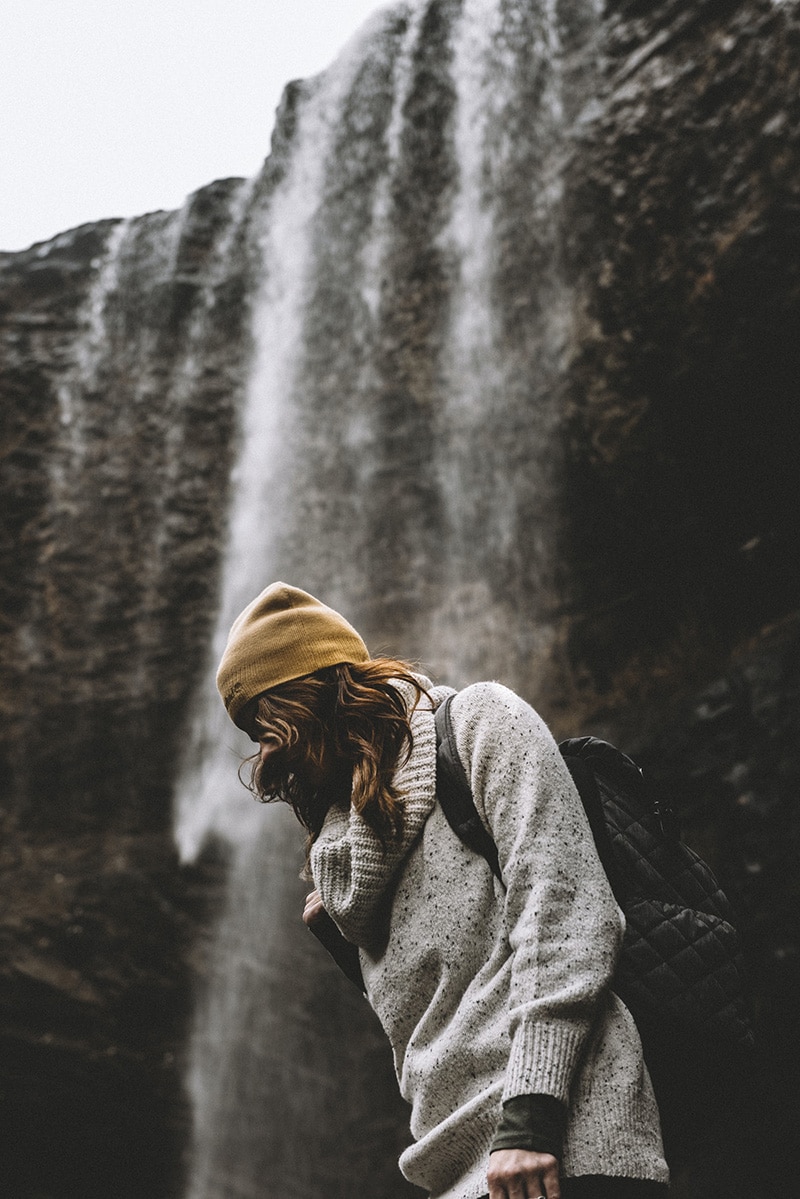
GOTS Certified organic
“The Global Organic Textile Standard (GOTS) is an internationally recognised organic textile standard. Since its introduction in 2006, GOTS has demonstrated its practical feasibility and is supported by the growth in consumption of organic fibres and the demand for a unified processing criteria from the industry and retail sectors.
GOTS ensures the organic status of textiles from the harvesting of the raw materials through environmentally and socially responsible manufacturing all the way to labelling, in order to provide credible assurances to the consumer.
The standard covers the processing, manufacturing, packaging, labelling, trading and distribution of all textiles made from at least 70 percent certified organic natural fibres. The final fibre products may include, but are not limited to, yarns, fabrics, clothes and home textiles.
However, this standard does not set criteria for leather products.”

Fairtrade
“Our mission is to connect disadvantaged producers and consumers, promote fairer trading conditions and empower producers to combat poverty, strengthen their position and take more control over their lives.”
Small-scale farmers and workers are among the most marginalized by the global trade system. At Fairtrade, they are at the heart of everything they do. Unique among certification schemes, producers have an equal say in how Fairtrade is run and are included in all our decision-making.
For farmers and workers, Fairtrade means:
Prices that aim to cover the average costs of producing their crop sustainably – a vital safety net when market prices drop
- The Fairtrade Premium – an extra sum of money paid on top of the selling price to invest in business or community projects of their choice
- Decent working conditions and a ban on discrimination, forced labour and child labour
- Access to advance credit ahead of harvest time
- Being able to plan more for the future with more security and stronger relationships with buyers”
B Corporations
“The B Corp movement is one of the most important of our lifetime, built on the simple fact that business impacts and serves more than just shareholders—it has an equal responsibility to the community and to the planet.”
– Rose Marcario, CEO of Patagonia
Certified B Corporations are a new kind of business that balances purpose and profit. They are legally required to consider the impact of their decisions on their workers, customers, suppliers, community, and the environment. This is a community of leaders, driving a global movement of people using business as a force for good.
Bluesign® Standard
“Bluesign is a system that provides safer and more sustainable environments for people to work in and everyone to live in. Powered by a holistic approach, BLUESIGN traces each textile’s path along the manufacturing process, making improvements at every stage from factory floor to finished product.”
Bluesign changes the environmental impact of textiles for good. As a solution provider and knowledge broker, Bluesign acts as an independent verifier to secure trust and transparency. Corresponding to this approach, Bluesign encourages the industry to increase their efforts in sustainable processes step by step.
Fair Wear Foundation
“Fair Wear Foundation is a non-profit organisation. We know there’s a better way to make clothes. Our mission is to see a world where the garment industry supports workers in realising their rights to safe, dignified, properly paid employment.”
“At Fair Wear Foundation, we know there’s a better way to make clothes. We want to see a world where the garment industry supports workers in realising their rights to safe, dignified, properly paid employment.”
To do this, Fair Wear Foundation focus on garment production, specifically sewing, cutting and trimming processes–the most labour intensive parts of the supply chain.
They work with 140+ member brands, who are committed to finding a fairer way to make clothes, and engage directly with factories, trade unions, NGOs and governments to find answers to problems others think are unsolvable. Together they are stitching together new solutions across the supply chain to make fashion fair for everyone.
Fair fashion—a new normal
“Working with our member brands here and on the ground in production countries across Asia, Europe and Africa, we take practical steps to show that it’s possible to make clothes in a fairer way. Our member brands are doing advanced work.
However, we will need all brands, trade unions and other labour rights NGOs on board to transform the industry, to make sure social responsibility will not be considered an optional add-on, a favour we’re providing to garment workers. Fair fashion is about fundamental rights. Therefore, together with trade unions and other NGOs, we are pushing towards a new normal—creating change that goes far beyond our reach.”
How did they get here?
“It all started back in 1999 when the FNV, a Dutch trade union, and the Clean Clothes Campaign, an advocacy group for garment workers, got together to improve labour conditions in the garment industry.
Starting with pilot projects at four Dutch companies, this small partnership eventually grew into what is now Fair Wear Foundation. Today, we are a staff of more than 50 employees working closely with our 130 member brands a fairer and more ethical fashion industry.”
IVN (Internationale Verband der Naturtextilwirtschaft e. V.)
The organisation IVN (Internationale Verband der Naturtextilwirtschaft e. V.) was founded in 1999 and has developed two quality seals: Naturtextil IVN certified BEST and Naturleder IVN certified.
These two seals are responsible for safeguarding and reviewing the entire textile production chain, both in terms of ecological standards and social accountability.
The IVN standard provides ecological quality and encourages eco-friendly textile and leather products. Certified textiles may carry the IVN certified or IVN certified BEST label.
This certification brings a greater sense of confidence to the consumer, as residue limits are much more stringent than those legally permitted. Naturtextil IVN certified BEST is a standard for eco-friendly textiles with the strictest requirements for ecological textile production at the highest technical levels.
Only a select range of products can meet this standard and the minimum requirement for this certification is the Global Organic Textile Standard (GOTS). It addresses all production stages from raw material to sale and the use of the finished leather (not the finished leather products). Naturleder IVN certified is a standard for eco-friendly leather products in Europe.
GRS (Global Recycling Standard)
The Global Recycled Standard is an international, voluntary, full product standard that sets requirements for third-party certification of recycled content, chain of custody, social and environmental practices, and chemical restrictions.
The GRS is intended to meet the need of companies looking to verify the recycled content of their products (both finished and intermediate products) and to verify responsible social, environmental, and chemical practices in the production of these products.
The objectives of the GRS are to define requirements to ensure accurate content claims, good working conditions, and that harmful environmental and chemical impacts are minimized.
The Global Recycle Standard (GRS) was originally developed by Control Union Certifications (CU) in 2008 and ownership was passed to Textile Exchange January 1st, 2011.
Oekotex®-Standard 100
The OEKO-TEX® Standard 100 is an independent testing and certification system for textile raw materials, intermediate and end products at all stages of production.
OEKO-TEX® enables consumers and companies to make responsible decisions which protect our planet for future generations.
They consist of 18 independent research and test institutes in Europe and Japan. They are responsible for the joint development of test methods and limit values which form the basis for their standards.
They are tested for harmful substances as: illegal substances, legally regulated substances, known harmful (but not legally regulated) chemicals as well as parameters for health care. In their entirety the requirements clearly exceed existing national legislation.
PETA (vegan) Approved
More than 1,000 companies are using the “PETA-Approved Vegan” logo to highlight clothing, accessories, furniture, and home decor items made of vegan alternatives to animal-derived materials such as leather, fur, silk, feathers, or bone.
It helps consumers identify vegan items at a glance while shopping and make purchases that align with their values.
People for the Ethical Treatment of Animals (PETA) is the largest animal rights organization in the world, with more than 6.5 million members and supporters.
PETA opposes speciesism, a human-supremacist worldview, and focuses its attention on the four areas in which the largest numbers of animals suffer the most intensely for the longest periods of time: in laboratories, in the food industry, in the clothing trade, and in the entertainment industry.
We also work on a variety of other issues, including the cruel killing of rodents, birds, and other animals who are often considered “pests” as well as cruelty to domesticated animals.
PETA works through public education, cruelty investigations, research, animal rescue, legislation, special events, celebrity involvement, and protest campaigns.
Social Accountability Standard International SA8000
Mission
SAI advances human rights at workplaces.
Vision
We envision a world where workers, businesses, and communities thrive together.
Who We They?
Founded in 1997, Social Accountability International (SAI) is a global non-governmental organization advancing human rights at work. SAI’s vision is of decent work everywhere—sustained by an understanding that socially responsible workplaces benefit business while securing fundamental human rights.
SAI empowers workers and managers at all levels of businesses and supply chains, using its multi-industry SA8000® Standard, as well as Social Fingerprint®, TenSquared, and other training and capacity-building programs.
SAI is a leader in policy and implementation, working together with a diverse group of stakeholders, including brands, suppliers, governments, trade unions, non-profits, and academia.
Slow Fashion
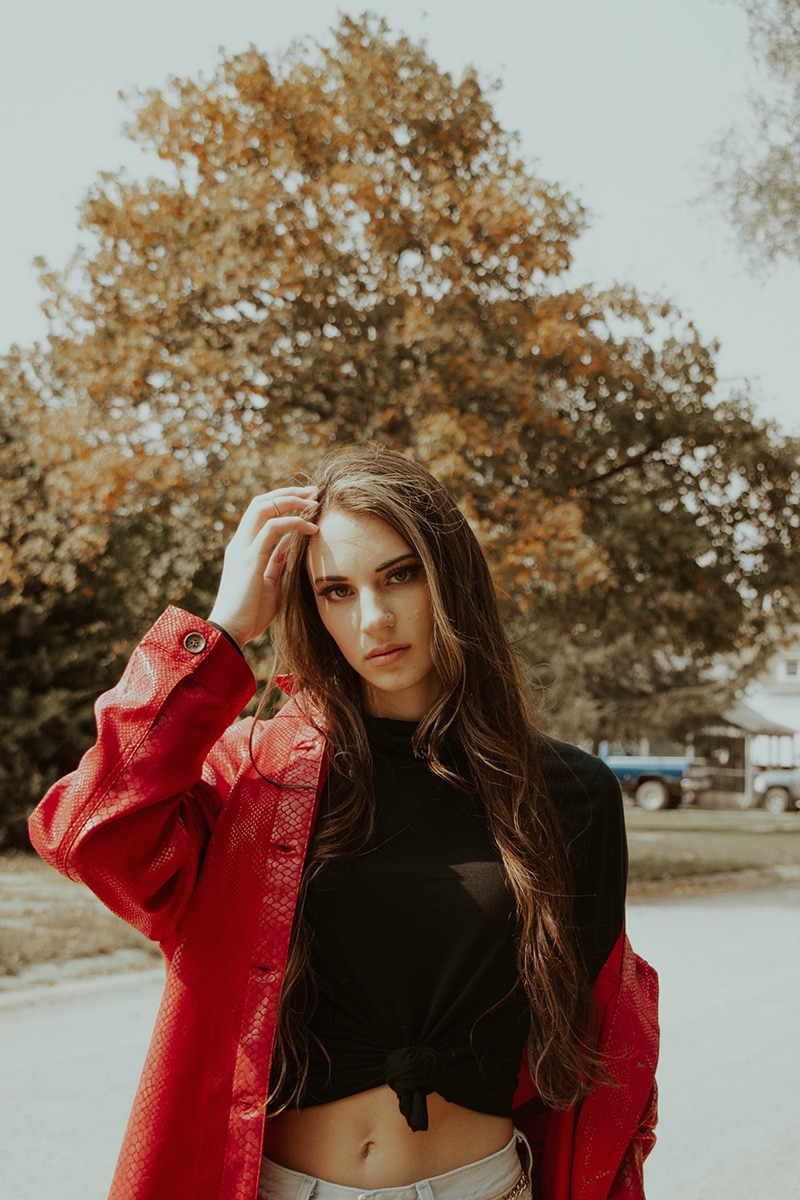
“Slow fashion is also about returning to a personal relationship with fashion. One where trends and seasons don’t matter, but where your ethics and aesthetics seamlessly unite, and you can escape the stress of constant consumption, focusing on the style that truly appeals to you.”
– Emilia Wik, Head Designer at BYEM
According to theKate Fletcher (widely credited with coining the term “slow fashion” in 2007) in the Ecologist “Slow fashion is about designing, producing, consuming and living better.
Slow fashion is not time-based but quality-based (which has some time components). Slow is not the opposite of fast – there is no dualism – but a different approach in which designers, buyers, retailers and consumers are more aware of the impacts of products on workers, communities and ecosystems…Slow fashion is about choice, information, cultural diversity and identity.
Yet, critically, it is also about balance. It requires a combination of rapid imaginative change and symbolic (fashion) expression as well as durability and long-term engaging, quality products.”
The sustainable clothing brands listed in this article will help you to make ethical choices about what you choose to wear.
“What is the actual link between material consumption and objective and subjective quality of life once the basic needs for food, clothes, shelter, and mobility are well satisfied?
Going from material misery to modest material comfort will make many things in life better but, obviously, the link is not an endless escalator. But if so, where is the saturation point? Can such a level actually be quantified in a meaningful way? These questions must be asked even if there are no easy answers…”
– Vaclav Smil, “Making the Modern World: Materials and Dematerialization”


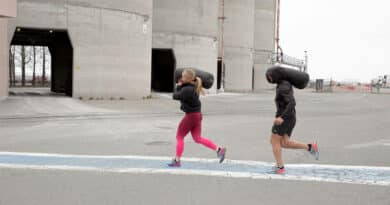
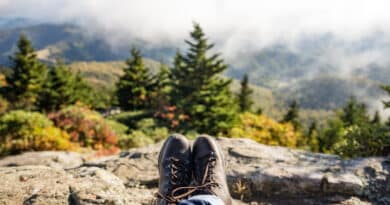
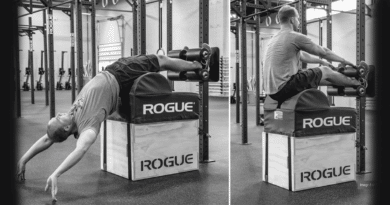
Comments are closed.